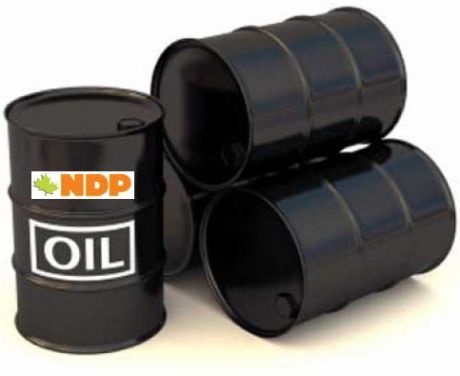What we think
You are here
No pipeline east, no domestic refining: shut down the tar sands and all pipelines

March 7, 2013
Speaking to the business community across the country, NDP leader Thomas Mulcair has been building a contradictory case to oppose tar sands pipelines going west but support them going east, as part of a plan to increase domestic refining of tar sands that threaten the planet.
Mulcair said he is “adamantly opposed” to the Northern Gateway pipeline, and that "it is madness to think of bringing those supertankers into that pristine coast. It is a non-starter. It is the most abject misunderstanding of the importance of protecting the environment I've ever seen in Canada." But at the same time, he supports pumping tar sands east.
Last September, in a speech to the elite Canadian Club of Toronto called “Building a balanced, 21st century economy,” Mulcair said pumping tar sands east was a “pro-business, common sense solution.” Recently, speaking at the Calgary Chamber of Commerce to representatives from oil giants Enbridge and Suncor, Mulcair delivered his strong words against western pipelines and tankers, but supported sending tar sands east in order to secure “a diversity of markets.” Accusing Harper of “sheer incompetence,” Mulcair promised that “the NDP will be a partner for the development of our energy resources when we form government in 2015” and that “we will work with you so that the rules are clear and that the public has confidence in what we’re trying to do together.”
This is part of the NDP leadership’s contradictory perspective to oppose the export of raw bitumen but support domestic refining. As NDP energy critic Peter Julian said last year in an interview with the National Post, “we are missing a real opportunity in oil sands development.” Responding to a proposal by media mogul David black to build a tar sands refinery in BC, Julian stated “we are happy that more people are looking at valued-added production in the country. We need to maximise the potential of our resources, and the fact that Mr. Black put forward that proposal shows more Canadians are coming to the NDP position.” As Julian argued, “We will be exporting thousands of jobs by sending bitumen that will be processed in the U.S….It does not make a lot of sense that we are importing in Eastern Canada and as a result have risky supplies, often from the Middle East, and at the same time exporting raw bitumen.”
This nationalist approach to tar sands plays into the Tories' claim about "ethical oil," and reinforces the faulty argument that tar sands and pipelines are important for jobs. Mulcair has called for "adding the value in Canada, developing, upgrading, processing, refining our own natural resources here...So whether it's that idea of having more refining capacity on the BC coast or what we've talked about, which is to move some of the bitumen in those pipelines, moving it east. Maybe that's a win-win situation. We can start taking care of our own energy security — add the jobs in Canada instead of shipping both the bitumen and the jobs to the US raw."
Indigenous sovereignty and green jobs
Whether tar sands are pumped west or east, and whether they are refined at home or abroad, makes no difference to the Athabasca Fort Chipewyan First Nation—which bears the brunt of tar sands pollution, and which has led the fight against it—or to global carbon emissions nearing a catastrophic tipping point. A tar sands spill from Line 9—threatening the water supply of the most densely-populated area of Canada—would be no less devastating than a spill off the west coast. As Art Sterritt from the Coastal First Nations said in response to Black’s proposal, “The oil you’re going to be sending out there and the quantity of ships and the air quality you’re going to be affecting in this geographic area are going to have the same results as sending crude oil offshore. I suggest that if you really want to do business in the north, you should really be out there talking to First Nations before you start making announcements.”
But while Mulcair refused to meet with Attawapiskat Chief Theresa Spence and called on her to end her hunger strike, he has been busy meeting with corporate executives across the country to convince them he would correct Harper’s “incompetence” through a “balanced” approach to tar sands and pipelines.
This approach also undermines the labour movement's push for green jobs. As a Canadian Auto Workers organizer said in in the lead up to the mass sit-in last October in Victoria, "The on-going risks that these tar sands pipelines and tankers pose aren't worth any price. Tens of thousands of unionized and other jobs depend on healthy river and ocean ecosystems. On October 22nd we will be standing in solidarity with thousands of working people in BC and our First Nations sisters and brothers."
Mulcair's strong words against Northern Gateway speaks to the massive and growing opposition on the west coast, and we need to replicate this opposition to Line 9—uniting indigenous groups, labour unions, environmentalists and the NDP—so that Mulcair can give voice to the only common-sense solution to looming climate chaos: oppose all pipelines, shut down the tar sands, and support indigenous indigenous sovereignty and good green jobs for all.
Section:










